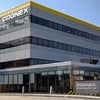Are Anti-Casino Forces Winning The Battle In Mass.?
After all the fanfare that accompanied last year’s passage and signing of the casino gambling bill in Massachusetts, the excitement over the prospect of blackjack tables and slot machines has faded in favor of loud and decisive rejections of casino proposals in two Bay State communities: Foxborough and Freetown.
Last month, casino magnate Steve Wynn backed out of a deal to bring a casino to Foxborough after casino foes won election to the board of selectmen. Later in May, the Wampanoag Tribe of Aquinnah lost a vote in Freetown to build a casino there and in nearby Lakeville.
That led us to wonder: Does the public have any appetite for even one resort-style casino in Massachusetts, let alone the three the legislation authorized?
The results in Foxborough and Freetown have proven how public distaste for casino gambling in the Bay State may trump the efforts of the Legislature and Gov. Deval Patrick to foist it on us. And that cold rejection, we believe, would be a better outcome for businesses in Central Massachusetts and throughout the commonwealth. When we opined on this subject last year (Sept. 12), we addressed the potential long-term effect: Will casinos make Massachusetts a more desirable or less desirable state for business investment? Will they undermine what has been the core strength of the commonwealth as an incubator for innovative companies and industries, supported by a foundation of strong public and private education?
We also believe that a Massachusetts entry into the casino market would oversaturate the Northeast, where Connecticut, New Jersey and Pennsylvania would provide already-established competition, shrinking the casino revenue pie further. To make matters worse, casino advocates in New York are pushing legislation that would allow up to seven casinos across the Empire State. Little wonder, then, that casino mogul and Boston native Sheldon Adelson decided to fold his hand on building a casino in Massachusetts because the state's plan to license up to three casinos and a slot parlor will dilute the market, his company’s spokesman told the Associated Press.
Meanwhile, in the central part of the state, casino proposals for Milford and Palmer are still alive. But last week’s unveiling of a $1 billion facility at Suffolk Downs in East Boston, which has the support of Boston Mayor Thomas Menino and lies within House Speaker Robert DeLeo’s district, will prove to be tough competition for David Nunes’s bid for his planned Crossroads Casino in Milford next to Interstate 495. (Under the law, the region encompassing Worcester, Essex, Middlesex, Norfolk and Suffolk counties would be limited to one casino.)
That’s assuming it gets beyond the planning stage. According to State House News Service, Nunes has allegedly not met with the town administrator since the law was passed and signed. “The board of selectmen is waiting to hear an actual, definite proposal. To this day they haven’t had anything to weigh,” Milford Town Administrator Louis Celozzi told the News Service. “We just haven’t gotten to that point.” Nunes disputed Celozzi’s view, saying he keeps in touch with the town.
Meanwhile, to the west, in Palmer, the Mohegan Tribal Gaming Authority has been making inroads in the community as it seeks to secure the one Western Massachusetts casino license the law allows. But the tribe, which runs the Mohegan Sun casino in Connecticut and another site in Pennsylvania, reported decreases in much of its revenue base in its most recent fiscal quarter. So, while it might benefit by winning a license for Palmer, it might also be borrowing from Peter to pay Paul given Palmer’s close proximity to Connecticut.
If you’re a casino supporter, you may be getting a little impatient at the lack of progress in weighing and granting licenses. But if you’re opposed, you may be heartened by the fact that the economic picture for casinos has changed significantly since the recession of 2008. With a more crowded landscape, and fewer dollars to go around, this will not be as easy road for gambling advocates to navigate. n









0 Comments